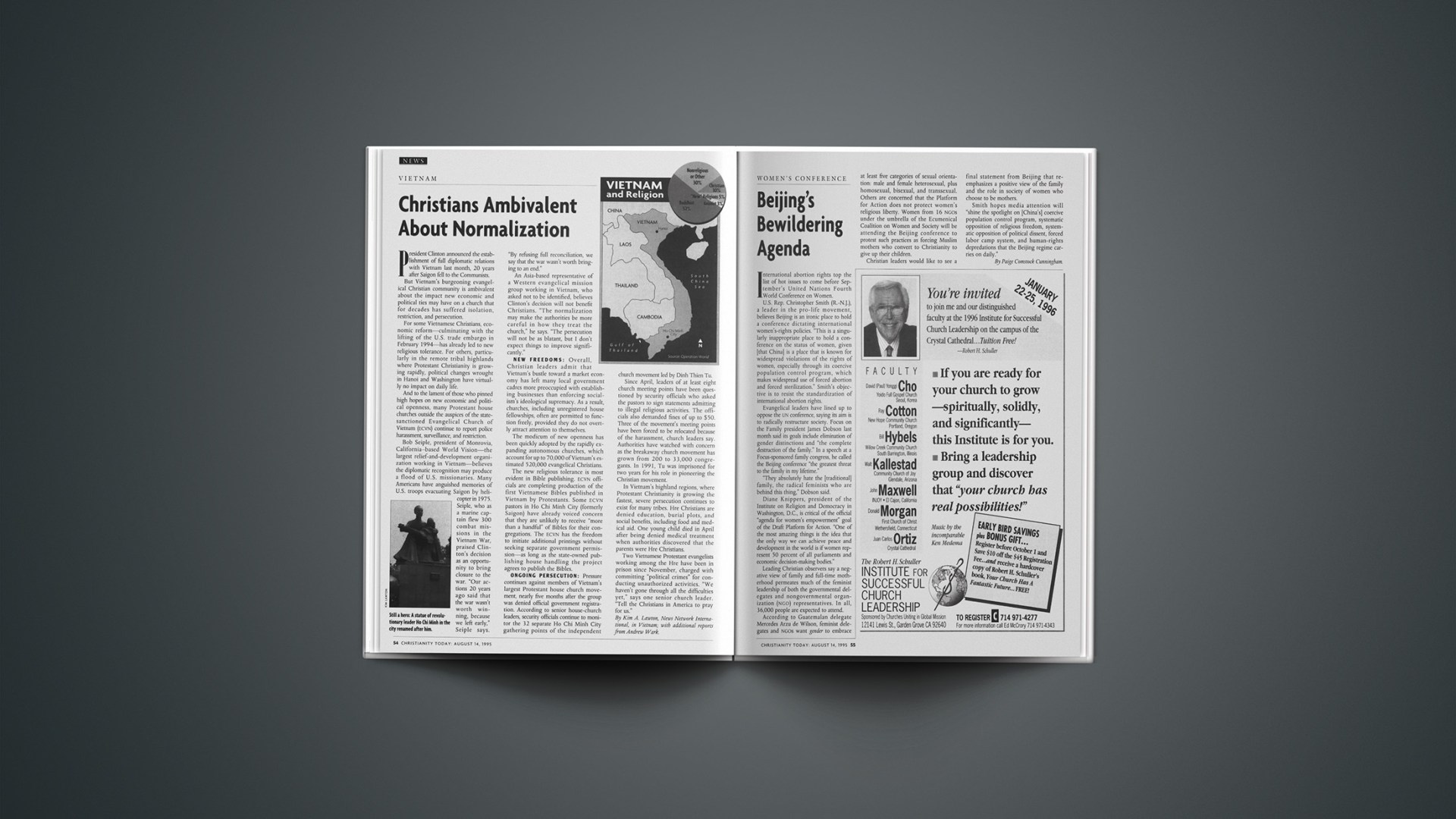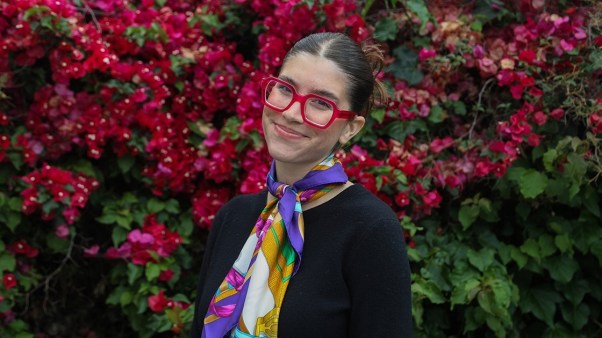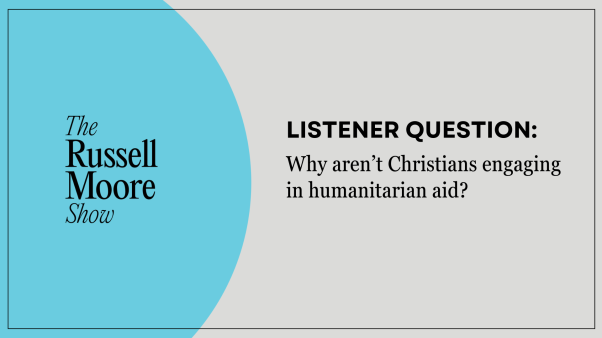President Clinton announced the establishment of full diplomatic relations with Vietnam last month, 20 years after Saigon fell to the Communists.
But Vietnam’s burgeoning evangelical Christian community is ambivalent about the impact new economic and political ties may have on a church that for decades has suffered isolation, restriction, and persecution.
For some Vietnamese Christians, economic reform-culminating with the lifting of the U.S. trade embargo in February 1994-has already led to new religious tolerance. For others, particularly in the remote tribal highlands where Protestant Christianity is growing rapidly, political changes wrought in Hanoi and Washington have virtually no impact on daily life.
And to the lament of those who pinned high hopes on new economic and political openness, many Protestant house churches outside the auspices of the state-sanctioned Evangelical Church of Vietnam (ecvn) continue to report police harassment, surveillance, and restriction.
Bob Seiple, president of Monrovia, California-based World Vision-the largest relief-and-development organization working in Vietnam-believes the diplomatic recognition may produce a flood of U.S. missionaries. Many Americans have anguished memories of U.S. troops evacuating Saigon by helicopter in 1975. Seiple, who as a marine captain flew 300 combat missions in the Vietnam War, praised Clinton’s decision as an opportunity to bring closure to the war. “Our actions 20 years ago said that the war wasn’t worth winning, because we left early,” Seiple says. “By refusing full reconciliation, we say that the war wasn’t worth bringing to an end.”
An Asia-based representative of a Western evangelical mission group working in Vietnam, who asked not to be identified, believes Clinton’s decision will not benefit Christians. “The normalization may make the authorities be more careful in how they treat the church,” he says. “The persecution will not be as blatant, but I don’t expect things to improve significantly.”
NEW FREEDOMS: Overall, Christian leaders admit that Vietnam’s bustle toward a market economy has left many local government cadres more preoccupied with establishing businesses than enforcing socialism’s ideological supremacy. As a result, churches, including unregistered house fellowships, often are permitted to function freely, provided they do not overtly attract attention to themselves.
The modicum of new openness has been quickly adopted by the rapidly expanding autonomous churches, which account for up to 70,000 of Vietnam’s estimated 520,000 evangelical Christians.
The new religious tolerance is most evident in Bible publishing. ecvn officials are completing production of the first Vietnamese Bibles published in Vietnam by Protestants. Some ecvn pastors in Ho Chi Minh City (formerly Saigon) have already voiced concern that they are unlikely to receive “more than a handful” of Bibles for their congregations. The ecvn has the freedom to initiate additional printings without seeking separate government permission-as long as the state-owned publishing house handling the project agrees to publish the Bibles.
ONGOING PERSECUTION: Pressure continues against members of Vietnam’s largest Protestant house church movement, nearly five months after the group was denied official government registration. According to senior house-church leaders, security officials continue to monitor the 32 separate Ho Chi Minh City gathering points of the independent church movement led by Dinh Thien Tu.
Since April, leaders of at least eight church meeting points have been questioned by security officials who asked the pastors to sign statements admitting to illegal religious activities. The officials also demanded fines of up to $50. Three of the movement’s meeting points have been forced to be relocated because of the harassment, church leaders say. Authorities have watched with concern as the breakaway church movement has grown from 200 to 33,000 congregants. In 1991, Tu was imprisoned for two years for his role in pioneering the Christian movement.
In Vietnam’s highland regions, where Protestant Christianity is growing the fastest, severe persecution continues to exist for many tribes. Hre Christians are denied education, burial plots, and social benefits, including food and medical aid. One young child died in April after being denied medical treatment when authorities discovered that the parents were Hre Christians.
Two Vietnamese Protestant evangelists working among the Hre have been in prison since November, charged with committing “political crimes” for conducting unauthorized activities. “We haven’t gone through all the difficulties yet,” says one senior church leader. “Tell the Christians in America to pray for us.”
By Kim A. Lawton, News Network International, in Vietnam; with additional reports from Andrew Wark.
Copyright © 1995 Christianity Today. Click for reprint information.
ctcurrtk5T90545814










